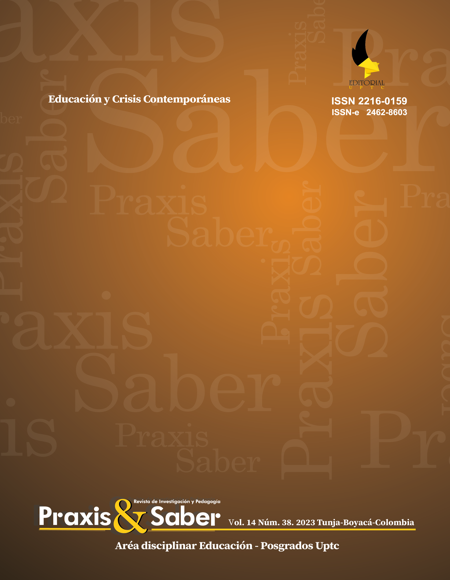Change of era and its impact on education

Abstract
The modern world is heading towards what could be considered its fourth industrial revolution, driven by technological advancements and artificial intelligence. This ongoing revolution, led by international organizations and global technology corporations, brings about a global standardization of education, as well as the expansion of the knowledge society, cognitive capitalism, and immaterial production. Amid these transformations stands the recent social syndemic that has spread worldwide, further exacerbating its effects through the social crisis that has been brewing since the dismantling of the welfare state and the rise of neoliberalism. Additionally, the transformation of control mechanisms has resulted in a renewed power dynamic. Therefore, creating new resistance movements that are capable of addressing modern social problems. These present times pose a challenge for 21st-century schools and teacher training. Thus, it is crucial to start thinking about education as a conduit for innovation and transformation by strengthening the connection between practice, thought, and resistance. This can be achieved through approaches such as popular education. By building on its historical and political foundation, popular education develops proposals that emphasize diversity, critical thinking, and the holistic development of individuals.
Keywords
education , technological revolution, capabilities, teacher training, 21st-century school.
References
- Acosta, A. (2015) ‘El Buen Vivir como alternativa al desarrollo’, Revista Política y Sociedad, 52(2). DOI: https://doi.org/10.5209/rev_POSO.2015.v52.n2.45203
- Bonilla, Luis. (2018). Apagón Pedagógico Global: las instituciones educativas en la cuarta revolución industrial y la era de la singularidad. Ediciones Bancoex. Caracas – Venezuela (En imprenta
- Boutang, Y. (2014). Le capitalisme cognitif. La nouvelle grande transformation. Editions Amsterdam.
- Carvajal, G. (2019). Creando talentos. Respuesta a una escuela inoperante. Tiresias Internacional.
- Charpak, G., & Omnés, R. (2005). Sed sabios, convertíos en profetas. Anagrama.
- Descartes, R. (1980). Tratado del hombre. Edición y traducción Guillermo Quintas. Editorial Nacional, Madrid.
- Freire, P. (1997). Educación en la ciudad. Siglo XXI Editores.
- Freire, P (1992). Pedagogía de la esperanza. Siglo XXI editores
- Giraldo, J. (2017). Intrusiones cuánticas en educación. Revista Educación y Ciudad, (32), 65-73. https://revistas.idep.edu.co/index.php/educacion-y-ciudad/article/view/1628/1607 DOI: https://doi.org/10.36737/01230425.v0.n32.2017.1628
- Gorz, A. (2006). L’immateriel. Connaisance. Valeur et Capital. Galilée.
- Jiménez, C., Puello, J., Robayo, A., & Rodríguez, M. (2017). Lo común. Alternativas políticas desde la diversidad. Cedepaz; Planeta Paz.
- Martín Barbero, J. (1987). De los medios a las mediaciones. Comunicación, cultura y hegemonía. México: Editorial Gustavo Gili S.A. Versión revisada 1991.
- Mejía, M. (2014). La sistematización empodera y produce saber y conocimiento. Desde Abajo.
- Mejía, M. (2020). Educación(es), escuela(s) y pedagogía(s) en la cuarta revolución industrial desde Nuestra América. Desde Abajo.
- Messina, G. & Quiceno, H. (2002). Expedición a la Expedición Pedagógica Nacional. Bogotá: UPN-Expedición Pedagógica, Fundación A. Restrepo Barco
- Nussbaum, M. (2013). Sin fines de lucro. Por qué la democracia necesita de las humanidades. Katz.
- Rodríguez, D., Taborda, M., & Toscano, N. (2020). Resistir para reexistir. La discapacidad desde una mirada crítica. Desde Abajo.
- Santos, B. (2020). La cruel pedagogía del virus. Clacso.
- Serrés, M. (2014). Pulgarcita. Fondo de Cultura Económica.
- Singer M. (1996). A dose of drugs, a touch of violence, a case of AIDS: conceptualizing the SAVA syndemic. Free Inquiry in Creative Sociology, 24(2):99-110. https://ojs.library.okstate.edu/osu/index.php/FICS/article/view/1461
- Vega, L. (2017). La dimensión ambiental del desarrollo. ECOE Ediciones.
